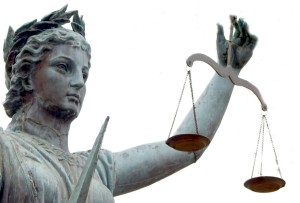An Illinois Court of Appeals reversed the conviction of an Illinois man on charges of criminal sexual abuse, finding that evidence of other sex crimes allegedly perpetrated by the defendant was inadmissible. Without that evidence, there was an insufficient basis for upholding the conviction.
People v. Puccini
The defendant, Leonard Puccini, was charged with criminal sexual abuse after allegedly spanking the bare bottom of a 12-year-old boy for his own sexual gratification. At trial, the court admitted evidence in the form of witness testimony from two older bo ys (now adults), both of whom alleged that Puccini sexually abused them in the 1990s (though he had not pulled their pants down and spanked them).
ys (now adults), both of whom alleged that Puccini sexually abused them in the 1990s (though he had not pulled their pants down and spanked them).
Illinois law allows evidence of prior charges or accusations of criminal sexual abuse to be admitted at trial to show the defendant’s propensity for committing sex crimes. Evidence of other alleged bad acts is admissible only if the probative value of the evidence – meaning that the evidence will assist the jury in its determination – outweighs any potentially negative effect. The fear is that evidence of prior bad acts will sway the jury to render a guilty verdict based not on the evidence in the case, but because it paints a picture of the defendant as an overall bad person. Just because a defendant committed a prior similar act does not mean he committed the act for which he is currently charged, which is why the court must carefully consider whether the evidence will unfairly sway the jury to find the defendant guilty.
When weighing the probative value of evidence, the court must consider:
- The proximity in time to the charged offense;
- The degree of similarity to the charged offense; and
- Other relevant facts and circumstances.
On appeal, Puccini’s attorney argued that the negative effect of the two witnesses’ testimony outweighed any potential benefit. No charges were brought against Puccini for the prior alleged crimes, and they allegedly occurred almost 20 years prior. In addition, the acts were not similar. The witnesses testified that, following the abuse, which allegedly involved Puccini touching their private parts, he then masturbated, thus fulfilling the “for his own sexual gratification” element of sexual abuse.
The testimony of the young boy in the present case was inconsistent on whether Puccini masturbated following the spanking. Statements he made to the police differed from what he said at trial, and his testimony that Puccini went into another room to sexually gratify himself after the spanking was not credible. The boy testified he only heard “tapping noises” in another room, and although he initially told police he thought Puccini had an erection, he admitted that he never turned around to look at Puccini after the spanking.
The Appellate Court noted that the trial court, in rendering its decision, relied solely on the testimony of the two adult males in determining Puccini’s actions were for his own sexual gratification. Yet the earlier crimes, if committed, were worse than the crime for which Puccini was currently on trial, causing the Appellate Court to rule that the prejudicial effect of the witnesses’ testimony outweighed any probative value.
Without the testimony of the two witnesses, the Appellate Court found that there was not enough evidence to support Puccini’s conviction. In this instance, the defendant cannot be retried – double jeopardy prohibits a defendant from being tried again in order for the prosecution to provide evidence it failed to produce in the first trial. Continue reading
 Chicago Criminal Lawyer Blog
Chicago Criminal Lawyer Blog




